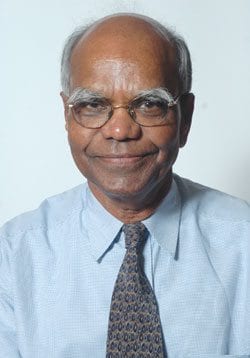
Because of the perfect pass rate on national exams for 14 straight years, Grambling State University’s graduate nursing program has gained a reputation for excellence in Louisiana.
Grambling State has been training nurses for about 25 years, opening its School of Nursing in 1987. A decade later, a graduate program was created to supplement the undergraduate course that produces registered nurses.
Since the first six students completed their masters of science in nursing degree in 1999, every graduate of the nurse practitioner tracks has passed a national licensing exam, qualifying them to write prescriptions and provide primary health care. All but five of the 155 graduates have stayed in Louisiana to work as advance practice registered nurses, most as family nurse practitioners in clinics.
Grambling administrators attribute the program’s success to high standards for admission and coursework, a stable faculty who challenge and nurture students, and a patient, supportive central administration.
“I would say not only because we uphold standards, but because we have very dedicated faculty who are standards-driven,” said Rhonda D. Hensley, who has directed the program since its inception. “They believe in evidence-based practice and are very student-friendly, very approachable. Our faculty is our biggest asset.”
The six faculty members, including Hensley, continue to be practicing nurses. “We allow them a practice day weekly. That keeps us up-to-date on what’s going on clinically and, I think, makes us sharper teachers,” Hensley said.
Rama M. Tunuguntla, interim dean of Grambling’s College of Professional Studies, said that because the nursing program is “pretty selective” in admissions “I give the grade to the faculty and the students.”
To get into the MSN program, applicants must have a 3.0 GPA, score high on the GRE and have at least two years experience as a registered nurse and good recommendations from other professionals. A written essay and personal interview are also required.
Getting through the difficult curriculum is tough, too.
“You have to have an 85 percent overall in each course to pass, which is a little high, but we just feel that it’s necessary to keep the standards high,” Hensley said. “We want the people who graduate from our program to be excellent. It’s worked so far.”
Students must log at least 700 hours working in a health clinic during the two academic years and a summer of full-time coursework.
So far, 75 percent of students have graduated on time, and the overall completion rate rises to the low 80s if later finishers are included, Hensley said. Then they must pass a national exam, usually of the American Nurses Credentialing Center or American Academy of Nurse Practitioners.
Within six months of graduation, Hensley said, all have found jobs. Most become family nurse practitioners treating patients of all ages. Since a pediatric nurse practitioner track was added a few years ago, five have specialized in caring for children and adolescents. Another 39 have become nurse educators, who do not have to take a licensing exam to teach.
Michael Brown of Monroe, La. had worked as a registered nurse for 15 years before entering Grambling’s graduate program.
“I was a little nervous about going back to school because I had a family and I just didn’t know if I had enough time,” Brown said. “But I always told myself if I’m going back, I’ve heard great things about the program at Grambling, so that’s where I wanted to go.”
His decision was based in part on the 100 percent pass rate.
Brown received his master’s in May and a month later became one of the 19 members of his class to pass a licensing exam. He is working in a cancer clinic in Monroe.
“That’s why I wanted to go there, because I knew they would give me the information and the knowledge I needed to go forward,” Brown said. “They taught from national standards and textbooks that are highly recommended in our field.”
Brown, like most Grambling MSN graduates so far, is white. “I didn’t know how I was going to be accepted,” he said. “But they accepted me just like I was anybody else. I had no problems at all.”
Hensley said that for the first eight years, a state grant brought “other race” students to the historically black university. About 15 to 20 percent of students were African American until 2009, when the U.S. Department of Education provided a grant to recruit more black students into a professional program in which they have been underrepresented. That second grant has at least doubled their numbers, she said.
The overall enrollment is also growing, under a strategy of gradually expanding to meet the demand for nurse practitioners while maintaining high academic standards. A class of 36 is scheduled to graduate next year.
“I’m definitely looking forward to seeing the statistics as our classes grow larger,” Hensley said. “I hope that it doesn’t have a negative impact, and I’m not expecting it to. We still won’t lower the standards.”


![Banner [Virtual] Art Gallery](https://baystatebanner.com/wp-content/uploads/2024/04/Cagen-Luse_Men-at-store-e1713991226112-150x150.jpg)



